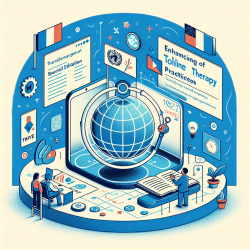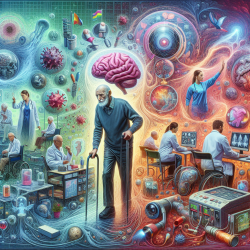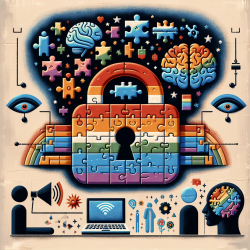The Routines-Based Model (RBM) has gained international recognition for its innovative approach to early intervention. Developed by McWilliam and colleagues, this model emphasizes the importance of integrating family-centered practices into everyday routines. It has been implemented in various countries, each adapting it to meet their unique cultural and systemic needs. This blog explores how practitioners can enhance their skills by adopting the RBM and encourages further research into its application.
Understanding the Routines-Based Model
The RBM consists of three main components: needs assessment and intervention planning, a consultative approach, and classroom management methods. Its hallmark practices include the Routines-Based Interview (RBI), support-based visits with families, and a focus on child engagement. The model's adaptability makes it suitable for diverse cultural contexts, allowing practitioners to tailor interventions to meet specific family needs.
Key Components of the RBM
- Needs Assessment and Intervention Planning: Practitioners conduct an ecomap and RBI to identify functional goals meaningful to the family.
- Consultative Approach: The model emphasizes building caregiver capacity through collaborative consultation, enabling families to support child development between professional visits.
- Engagement Classroom Model: This component focuses on promoting child engagement through incidental teaching and integrated therapy within classroom settings.
International Implementation Successes
Countries like Portugal, Spain, Taiwan, and New Zealand have successfully implemented the RBM, overcoming challenges such as cultural barriers and systemic constraints. These implementations have demonstrated improved child functioning in routines, increased family confidence, and enhanced professional satisfaction. For instance, in Taiwan, professionals reported significant mindset shifts after participating in RBM training, leading to better collaboration with families.
Challenges and Adaptations
Implementing the RBM internationally has not been without challenges. Common issues include resistance to moving away from clinic-based services, difficulties in adopting a primary service provider model, and ensuring ongoing professional development. However, these challenges have led to valuable adaptations that enhance the model's applicability across different contexts.
The Importance of Further Research
While the RBM has shown promising results globally, further research is needed to explore its long-term impact and potential adaptations. Practitioners are encouraged to engage in action research within their settings to contribute to the growing body of evidence supporting this model. By doing so, they can refine their skills and improve outcomes for children and families.
The Routines-Based Model offers a comprehensive framework for enhancing early intervention practices. By embracing its principles and adapting them to local contexts, practitioners can ensure that children receive meaningful support within their natural environments. To read the original research paper on this topic, please follow this link: The Routines-Based Model Internationally Implemented.










